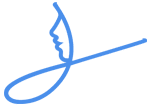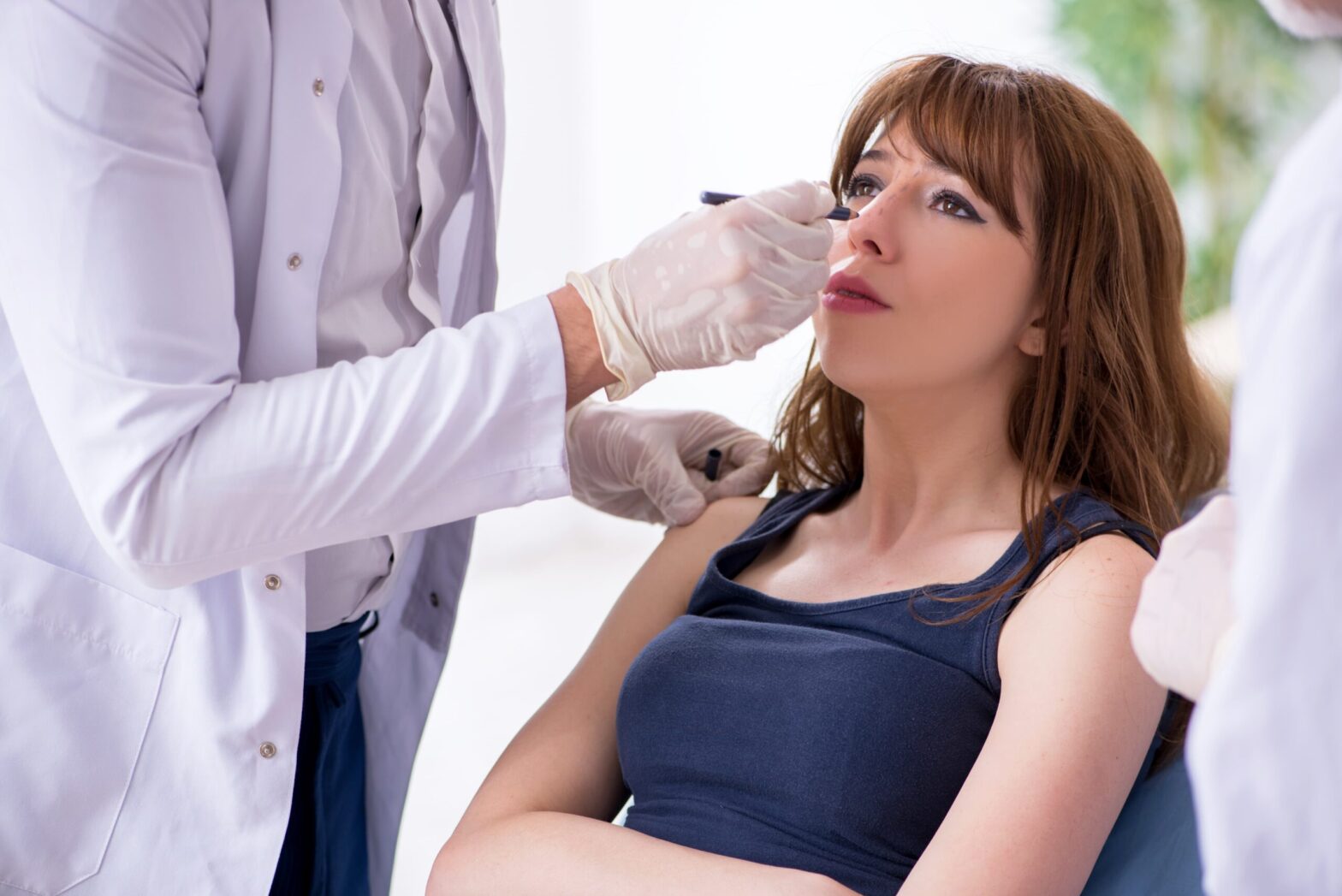Article At A Glance
- Avoid bumping or touching your nose, as this can disrupt healing.
- Keep the surgical site clean and dry to prevent infection.
- Apply ice packs to the nasal area to reduce swelling and discomfort.
What is Rhinoplasty?
Rhinoplasty is a cosmetic procedure that involves reshaping the bone and cartilage structures of the nose to alter its appearance and function. Rhinoplasty surgery improves the shape, size, and contour of the nose.
Rhinoplasty is also used to improve breathing. Conditions like a deviated septum or a broken nose can impair a patient’s ability to breathe, but rhinoplasty can properly address these issues.
To achieve the results you want, it’s important to choose an experienced surgeon like Dr. James Wang. Read on to learn about the dos and don’ts of recovering from rhinoplasty.
Additional Read: Improve Your Appearance with a Rhinoplasty Procedure
Tips for Rhinoplasty Recovery
The recovery process after undergoing rhinoplasty surgery is relatively easy. While you will experience bruising, swelling, redness, and discomfort, all of the post-op side effects are relatively minor.
There are some tips and tricks to support your body in the healing process and improve your recovery time. Here are some top dos and don’ts when recovering from rhinoplasty.
Don’t Blow Your Nose
Blowing your nose is natural. But, if the inside of your nose is being supported by a structure, such as a splint or packing, blowing your nose could cause the structure to dislodge or shift.
Blowing your nose, even softly, could injure the inside of your nose and compromise the healing process. It can also lead to increased redness, swelling, and inflammation.
After the procedure, you may experience congestion due to nasal blockages. Ask your doctor about using a nasal spray to clear congestion.
If your nose is draining, gently wipe or dab it. Be as delicate as possible!
Elevate Your Head
Whether you’re watching TV or sleeping, keep your head elevated and in a straight, upright position. This ensures that the nose gets the proper blood flow it needs to heal.
The head should be elevated for at least the first few weeks post-op. While sleeping in an upright position may not be the most comfortable, it’s the best way to protect a healing nose.
Limit Sun Exposure
Direct sunlight can be particularly harmful to your skin after rhinoplasty surgery. The procedure makes your skin more susceptible to sunburn, which can exacerbate swelling and potentially lead to additional bruising in the area. The harmful UV rays can also cause discoloration and may affect the healing scars, potentially compromising the aesthetic results of your surgery.
It’s crucial to protect your skin by applying a high-SPF sunscreen if you need to be outdoors, and whenever possible, wear a wide-brimmed hat to shield your nose from direct sunlight. Avoiding sun exposure as much as possible, especially during the peak hours of the day, is one of the best strategies to ensure smooth and uneventful healing.
Don’t Wear Sunglasses
Wearing sunglasses, reading glasses, or prescription glasses immediately after rhinoplasty surgery can place undue pressure on the nose, potentially jeopardizing the outcome of the procedure. This pressure can lead to complications such as bruising, increased swelling, or even indentations in the skin that might alter the final shape of the nose.
Your plastic surgeon will guide you on the appropriate time frame to start wearing glasses again. In the meantime, it’s recommended to use contact lenses whenever possible. If wearing glasses becomes absolutely necessary, opting for exceptionally lightweight frames may minimize the risk of negatively impacting the healing process.
Lower Your Salt Intake
Who doesn’t love a good salty snack, especially if you’re stuck on the couch healing? The bad news is that eating foods high in salt will increase your blood pressure, which leads to increased swelling and pressure near your incisions.
For the first few weeks post-op, avoid eating salty foods. You also want to be mindful of adding salt to your food.
Avoid Anti-Inflammatory Medication
While it might seem counterintuitive, it’s crucial to avoid anti-inflammatory medications during your rhinoplasty recovery. These medications can increase nasal swelling and blood circulation in the area, which could exacerbate bruising and slow down the healing process. While the increased blood flow is generally beneficial for healing, it can be detrimental in the delicate early stages post rhinoplasty because it may lead to additional swelling around the sensitive nasal tissues and incisions.
This heightened activity can compromise the precise adjustments made during surgery, affecting the final outcome. Always consult with your surgeon for approved pain relief options that won’t interfere with your recovery.
Eat a Nutritious Diet
What you eat after undergoing rhinoplasty plays a huge role in your body’s ability to heal. When recovering from any kind of surgery, it’s crucial to eat a diet of nutritious foods, especially those that are high in calcium, protein, vitamin C, and vitamin D.
Eating foods that are high in antioxidants, such as citrus fruits and leafy greens, will help to minimize swelling.
Add Walks To Your Routine
Adding gentle walks to your post-operative routine can be significantly beneficial to your rhinoplasty recovery process. Light walking helps gently increase circulation throughout your body, ensuring that oxygen-rich blood nourishes the healing tissues of your nose. This enhanced blood flow also helps to reduce the risk of fluid buildup around the surgical area.
Incorporating slow, leisurely strolls into your daily schedule can relieve stress and foster a positive mental state that is crucial for an effective recovery. Remember to consult with your surgeon on when it is safe to start incorporating walks into your recovery plan to ensure you do not overexert yourself and compromise your healing.
Stay Hydrated
Just as it’s important to give your body the nutrients it needs to heal, it’s also important to stay hydrated. Water improves recovery by ensuring nutrients and oxygen are delivered to the tissues to promote proper healing.
Drinking plenty of water reduces the likelihood of infection and helps to flush toxins left in the body from anesthesia.
Avoid Taking Painkillers Without Your Surgeon’s Approval
It’s important to follow your surgeon’s instructions regarding painkillers and other medicines during the recovery period after rhinoplasty. Pain medications that are not approved can prolong recovery time and negatively impact the results.
Your surgeon carefully chooses the type and dosage of medication to prevent any interference with the healing process. This ensures that the medication supports the healing process without introducing any risks, such as excessive bleeding, heightened swelling, or adverse reactions that could compromise the surgery’s outcome. Always consult with your surgeon before taking any medication, including over-the-counter drugs.
Choose an Experienced Surgeon like Dr. James
Undergoing rhinoplasty is a life-changing decision. Loving how you look is a huge part of being confident and happy. And the ability to breathe freely without any sort of blockage offers much-needed relief.
If you’re interested in rhinoplasty in Chicago, look no further than Dr. James Wang, an internationally recognized expert in facial plastic surgery. He strives to meet every patient’s vision while also creating a new nose that looks entirely natural.
Contact us today to schedule a consultation. We look forward to helping you get the nose you’ve always wanted!

